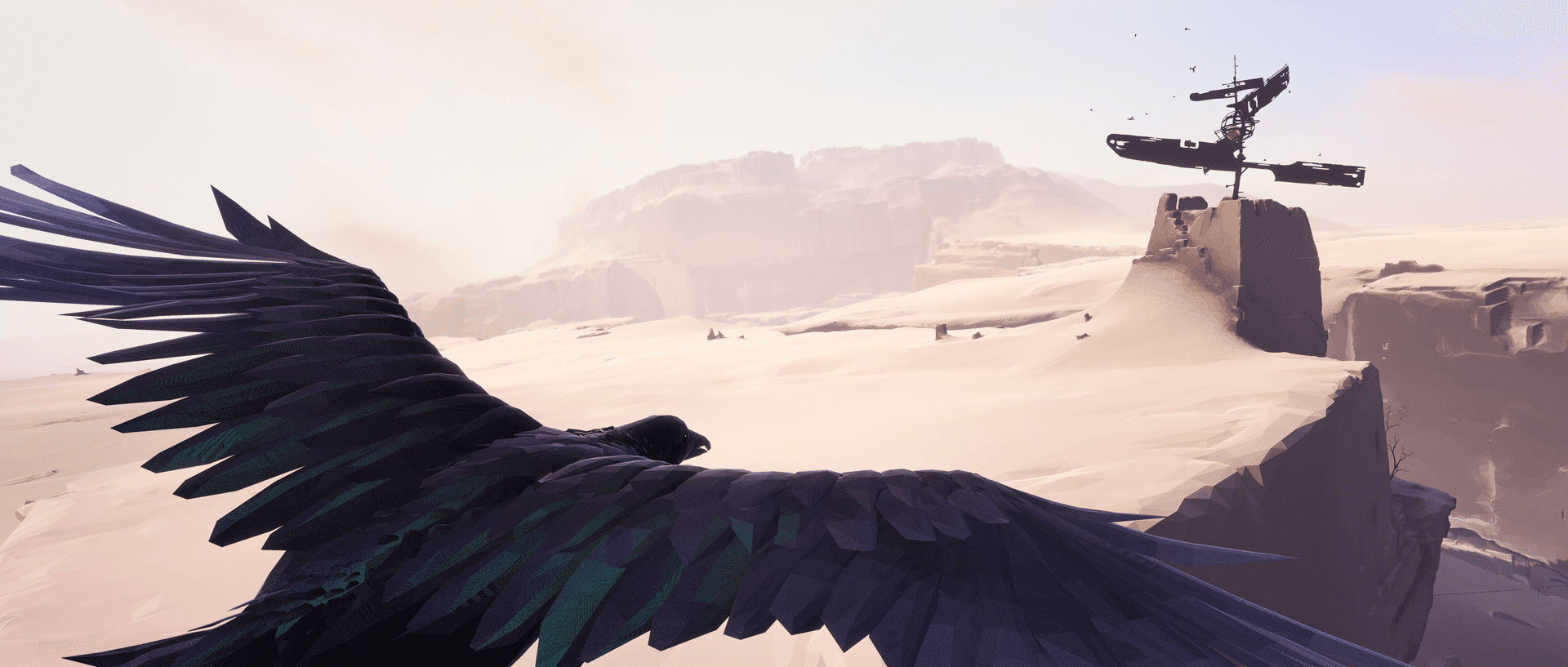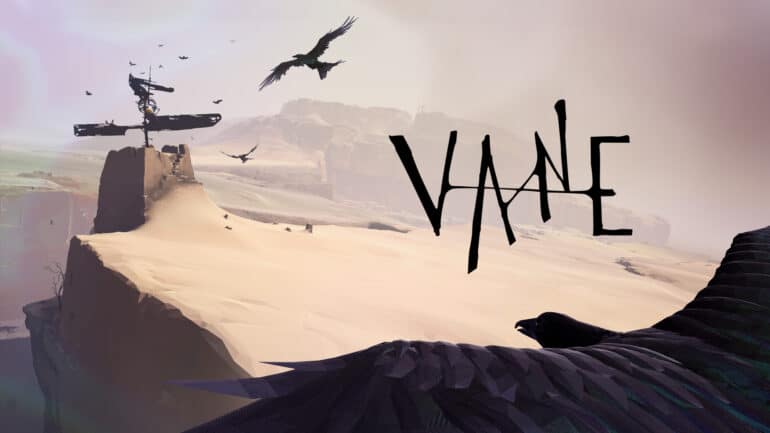When games try hard to be aesthetically unique and thematically avant-garde, they may either rise beyond expectations or fall extremely behind.
Vane by Friend & Foe, however, is the latter. What could have been an awe-inspiring movement on mystery and exploration ended up becoming one of the worst games I have ever come across.
In a post-apocalyptic land that’s 80% barren and 20% ruins, you control a raven that can transform into a human girl on occasions. Without a clear objective, you task yourself into flying the wide depths of the cubic landscape to see what can be “discoverable.”

However beautiful the setting may look, traversing through the land with strange flight physics takes you away from the aesthetic and instead sends you to furies of frustrations. It can take the raven way too long to fly higher or lower, so bumping into gigantic rocks and taverns is unavoidable.
If that in itself is frustrating, then the fact that all you will do in the game is literally fly around without any clear objective or direction just makes things worse. I could only wish for a map or a bird with internal GPS.
It did not become a game that demanded the players to seek more information or to crave for the mystery. Nothing enticed me enough to fly around barren lands. I had no idea what I was looking for, or why I needed to care about the mystery. There were no ends to the means.
An experimental design, such as this, that’s open-ended may perhaps work—If it wasn’t “open-started” as well. I find much more appeal in video games with an actual goal to reach or ones which provide subtle hints on why you need to take your time and explore. Vane provides you with nothing. Even its small cinematic premise at the beginning doesn’t give you much to start with.

Vane had advertised itself as a puzzle, exploration game. Though exploration by definition maintains its accuracy on the game itself—puzzles are vague.
As aforementioned, the lack of a premise puts you into a situation where you, as a matter-of-factly, know nothing. The puzzles put you in an area of further uncertainty. You leave either still knowing nothing or prompting questions such as “Is this even a puzzle?”
Completing puzzles in a rather barren game should put things into perspective. I can at least guide you to the right directions of the story. Rather, Vane, as this trend goes on, does the opposite. The absurdity of its vagueness is tiring and perhaps its purpose to be different and player-lead has ultimately backfired.
I take Vane as a lesson instead of outright trash on the video game. The developers had done their job in creating a game that was in accordance with how they wanted it. It was, at most, an experiment to see if the ideology works or not (it doesn’t).
I can only praise the bravery for having even tried to publish a game that goes against the norm, and maybe Friend & Foe may see this as a curve to create games that take notes from Vane’s failures. Genres develop over time, especially in an industry that’s taking on new trends and breaking standards. Taking Vane as an example of the growing variety is a sign of the changes.
It is never in my journalism ethics to spew pure loathing over a game I did not find enjoyable. Instead, I objectively analyze the game’s trend — whether it be unique or conventional. Though Vane did not hit any mark for it to be considered good, we can only wonder what’s next for Friend & Foe, and hope that the developers understand that gamers want to not only be challenged intellectually but to also attain an experience they will always remember.
Disclosure: This review is based on a review code provided by Friend & Foe. Read our review policy to know how we go with our game reviews.
Tested on: PS4
